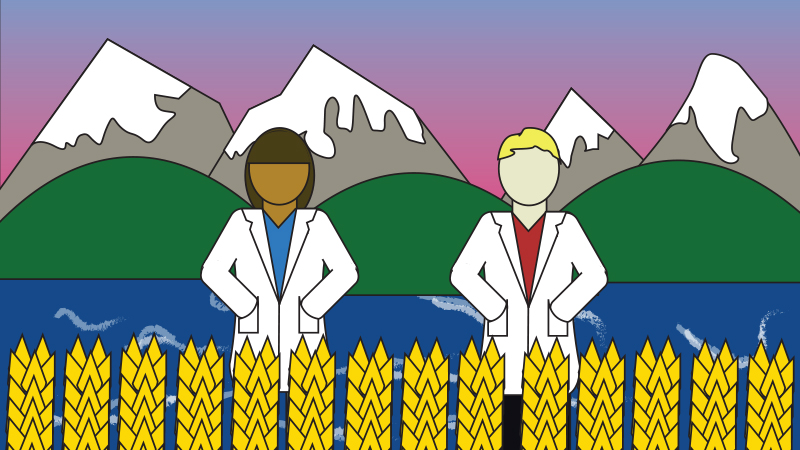
UAlberta medical education emphasizes rural practice through programs like the Rural Integrated Clerkship. (Image: Amy Hewko)
For Lee Rehak, being a doctor means being part of a community.
The graduating medical student, who will cross the stage June 5, has always had an interest in family medicine, especially rural family medical practice. So the Faculty of Medicine & Dentistry's Rural Integrated Community Clerkship (Rural ICC) program was very appealing.
The program, which is available to third-year medical students in one of 10 rural Alberta locations, was also the focus of a recent study by Jill Konkin, who shares Rehak's passion for rural medicine. She is the associate dean in the Division of Community Engagement in the faculty, and an associate professor of family medicine.
"The study told us what the students think are the most important aspects of the longitudinal integrated clerkships (LIC), and we agree," says Konkin about the findings, showed that future participants in the study should be "flexible, adaptable, comfortable being uncomfortable, adventuresome and [should] embrace both the program and the rural community life in order to benefit maximally from the experience."
Rehak agrees with that assessment, and says the results of the study demonstrate the same positive experience that he had during his participation in 2014.
"The more you put in, the more you get out," says Rehak about the Rural ICC experience. "You need to be flexible and to be prepared to take advantage of opportunities when they come through the doors."
The significant difference between the rural clerkship versus the rotations-based clerkship is the difference in exposure to patients, their needs and the treatment, not the quality of education, say both Konkin and Rehak. In the rotations-based clerkships, for instance, a student is exposed to a specialty during a defined time period, but in the community-based clerkship, the student may see a broader scope of medicine during the nine months in that community.
"There is a huge difference between integrated community clerkships and rotation-based clerkships, in that with rotations, you see one piece of medicine for a short stint, with a focus on a specialty, but with the Rural ICC, students see all of medicine, every day," says Konkin.
Plus, says Rehak, the timing is great for students who have participated in the Rural ICC and the exposure to a multitude of medical cases. "In our last year we do the rotations-based training that focuses on specialties, so when we've seen these types of cases in the community, you're ahead of the game."
"One of the huge benefits for Rural ICC students is that 99 per cent of health care happens outside tertiary health centres," says Konkin. "So we put students in these places, which we then balance with community engagement." Further, she says, "the students in the Rural ICC are often the first person to see a patient so they are a step earlier in the process of diagnosis," all factors in creating a well-rounded experience for a future physician.
And the community aspect? For Rehak, the relationships he developed during his clerkship-whether with his preceptors, his fellow students, the nurses or patients-will be critical in building his education as he enters his family medicine residency program this summer.
"The learning is up to the student, but the sky's the limit."